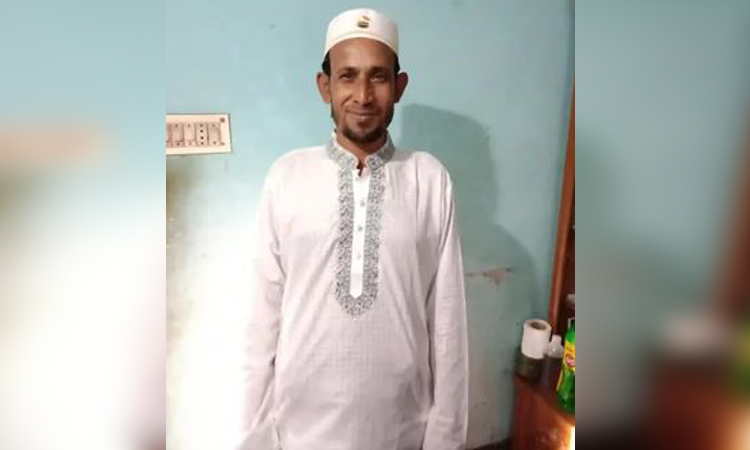
By Syed Altefat Hossain
DHAKA, Jan 17, 2025 (BSS) – Sinthia aged 14, is still haunted by loving memories of her father as Md Jahangir Alam sacrificed his life during the student-led mass uprising.
Each morning, she wakes up to the deafening silence caused by her father’s absence as her father, Md Jahangir Alam, was brutally killed by members of the law enforcement agencies as he went out for work.
Jahangir, a 48-year-old vegetable (spinach) vendor, was a victim of the brutal crackdown that marked the student-people uprising which has been successful to oust the nearly 16-year-long fascist regime on August 5 last year.
On July 19, when he went to bring spinach at Kazlar Bridge in Jatrabari, police allegedly shot him dead. A bullet pierced through his chest and lodged inside. The tragedy unfolded just 200-300 meters away from his home, leaving his family shattered.
For Sinthia, a ninth grader at Kajlarpar High School, the loss is unbearable. She burst into tears as this correspondent approached her recently for some words about her martyred father at their Kajlarpar permanent residence at Jatrabari in the city.
“I can never forget my father even for a moment. When I see other children calling their fathers ‘baba,’ it leaves me devastated. I wish I could call him ‘baba’ just one more time,” she said, as tears rolled down her face.
“Every morning I miss my father when I go to school. He used to give me money for Tiffin and say goodbye with a smile. Since my father’s death, no one now stands at the door to give me money for Tiffin,” weeping Sinthia added.
Being the youngest among the two daughters of Jahangir Alam, Sinthia is facing an uncertain future. Her elder sister, Mithila, is married, and her mother, Taslima Begum, is struggling with illness.
“I want to study. I dream of pursuing higher education and helping my mother,” Sinthia expressed her unwavering determination despite immense barriers. But Taslima is unable to work and has no means to provide for Sinthia’s education.
Without financial support, Sinthia fears that she would be forced to abandon her education. “The man who supported my education is no longer with us. How will I continue my studies? Who will take the responsibility of my education?” she asked in a trembling voice.
Since Jahangir was his family’s sole breadwinner, his death left his family distraught. Taslima Begum, now widowed at 39, described her husband as a kind and hardworking man who did everything for his family.
“My husband was shot dead by the police around 4:30 pm when he went to bring spinach. When some people informed us about it, my brothers-in-law rushed to the scene and took him to Mugda Hospital, but the doctors declared him dead,” she wailed.
That evening, Taslima said, Jahangir’s body was brought home and buried at Kajlarpar Graveyard in the same night.
Jahangir embraced martyrdom at a time of sheer terror when members of law enforcement agencies were reportedly firing live bullets indiscriminately to suppress the anti-discrimination student movement that eventually turned into a student-people uprising.
According to eyewitnesses, at that time police were allegedly making many bodies disappear to show a low number of casualties.
Since her husband’s death, Taslima is now seeing sparks before her eyes about their future along with her youngest daughter. They are now struggling to cope with financial hardship and a future clouded by uncertainty.
“My husband ran the family vending vegetables. But since his death we are in a dire situation. Since I have no son, I am in the dark about our future,” she lamented.
After her husband’s death, Taslima’s health has worsened, preventing her from joining any work. “I don’t know how I’m still standing. I am now more anxious about my younger daughter Sinthia. I don’t know how I will build a good future for her,” she said in an emotion-choked voice.
Pleading for government assistance to ensure her daughter’s education, Taslima said, “If the government extends their cooperation, it will help my daughter to continue her education”.
“The government should extend cooperation to the families of July uprising martyrs,” Sinthia said.
“My father was a good man. But the police killed him and made us orphans. I want capital punishment of those responsible for my father’s killing,” she said.